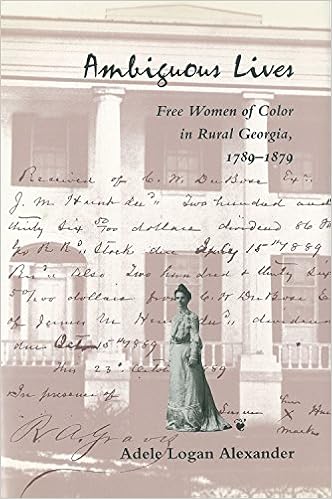Author and scholar Adele Logan Alexander appears at the 2010 National Book FestivalPosted in History, Media Archive, United States, Videos, Women on 2011-03-04 19:57Z by Steven |
Author and scholar Adele Logan Alexander appears at the 2010 National Book Festival
2010 National Book Festival
Library of Congress
Washington, D.C.
2010-09-25
Running Time: 00:32:45
Adele Logan Alexander, Professor of History
George Washington University
Speaker Biography: Adele Logan Alexander’s research and teaching incorporate the black Atlantic world, African-American history, family history, gender issues and military and social history. Her first book examined the lives and significance of nonenslaved women of color in the rural antebellum South. Her second explored the Americanization and evolving citizenship of an African- (and Anglo-) American family in the 19th and 20th centuries. In 2003 the African American Historical and Genealogical Society recognized her contributions to the study of family history with an award for Outstanding Lifetime Contribution. She is an adjunct professor of history at George Washington University. Her books include “Homelands and Waterways: The American Journey of the Bond Family, 1846-1926” and “Ambiguous Lives: Free Women of Color in Rural Georgia.” Her latest book is “Parallel Worlds: The Remarkable Gibbs-Hunts and the Enduring (In)Significance of Race” (University of Virginia Press).
Read the Questions and Answers transcript here.
Audience question: In your significant study of African-American families and I guess particularly mixed families, how often did you come across the use of skin products–skin lighteners or whiteners or even darkeners; or was that something that you were able to research or was that something that was talked about at all or written about?
Adele Alexander: Certainly I don’t write about it because I never found it in any of the people that I happen to write about. However, I’ve done a lot of work with a woman you may know about whose name is A’lelia Bundles whose great grandmother was Madame C.J. Walker who developed hair straightening–she called them hair health products, skin health products that also served to create a more–a whiter appearance. But I guess that one of the things is that it almost seems remarkable to me not that so many people did these things, but that so many did not. Because in our culture there was so much of a premium that has been placed on whiteness–day to day inconveniences, legal restrictions and everything else. It’s easy for me to understand why a number of black people wanted to be part of the majority in this country because they were so discriminated against and any steps in that direction I think were understandable.
